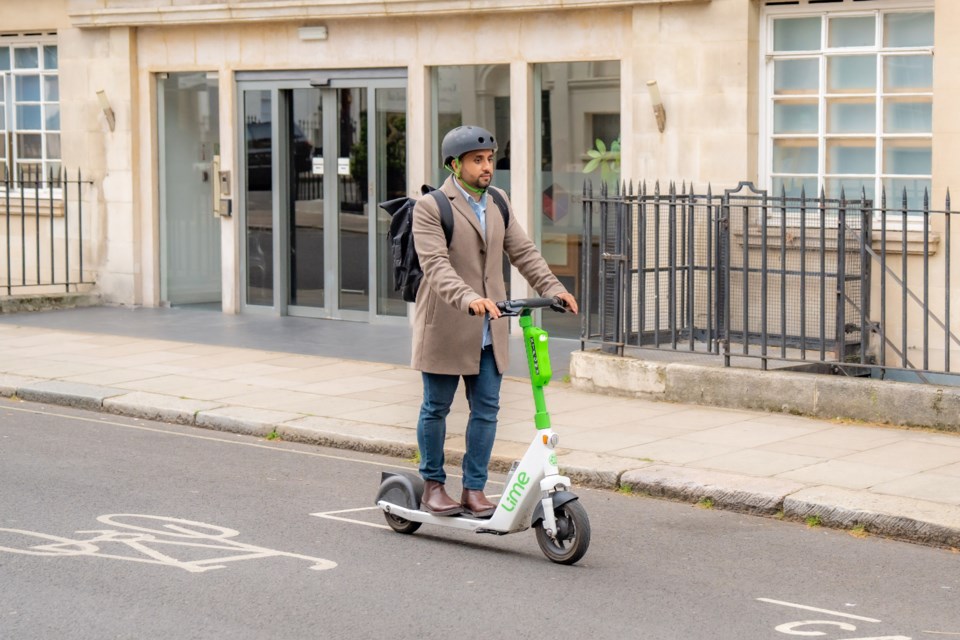Growing in popularity, e-scooter riders are popping up everywhere around the region.
Once a favourite childhood toy is now an electric vehicle that can transport people anywhere from 25 km/h to 50 km/h.
As they began to gain popularity, Engage Waterloo Region launched a study asking residents about their concerns with the new mode of transportation and to see if the region's traffic and parking bylaw should be changed to allow e-scooter users on certain regional roads.
The public consultation survey titled 'Where should people be allowed to ride e-scooters in Waterloo Region?' received 1,439 respondents.
Of those respondents, 54.1 per cent voted in favor of permitting e-scooter users on trails and multi-use paths, all roads with reserved bike lanes and any road 50 km/h or less.
The Region of Waterloo planning and works committee approved bylaw changes April 12 which Regional Council then approved April 27.
It means, starting July 1, e-scooters will be allowed on all region-owned multi-use paths, all regional roads with bike lanes and any regional road marked 50 km/h or less, staying to the right of the road.
“Over half of the respondents supported our project teams preferred option which is what council ended up approving at the region level,” said Kevan Marshall, principal planner in transportation demand management and transit integration for the Region of Waterloo.
They also put a helmet requirement for e-scooters in place to ensure safety for users, based on recomendations by Public Health Ontario.
The changes come into effect July first, until then, e-scooters are not allowed outside of private property.
Currently they are not permitted on any public road, trail or sidewalk, Marshall added.
“Electric assisted vehicles are definitely top of mind right now, and we're seeing that in the community too.”
They are trying to keep e-scooter users off sidewalks to prevent collisions with pedestrians.
Lisa Chominiec the sustainable transportation coordinator for the City of Cambridge has been working with Marshall and a team as a joint project with the cities to update the bylaws regarding electric scooters.
City councils are meeting in June to determine if e-scooters should be allowed on select city roads and city-owned trails to coincide with the region's decision.
City staff plan to bring a report to council this month recommending changes to the traffic and parking bylaw.
"If approved by council, there would be some changes to the bylaw that would take effect July 1, 2022 to coincide with the Region’s changes for e-scooters," replied Chominiec in an email.
"We are seeing more use of them as they become more easily available to the public."
Also on the table for council's approval this month, an e-bike and e-scooter share plan for all three cities.
“We did a feasibility study, and that was a joint study between Kitchener, Cambridge and the Region, looking at how we can do a more sustainable bike share program in the city and as we started that study e-scooters had emerged in a lot of North American markets, so we looked at how e-scooters might supplement or be part of that program,” said Marshall.
Nearly 67 percent of all respondents to the EngageWR public consultation survey thought the region and cities should permit commercial e-scooter rentals.
“That kinda helped inform where we landed with our shared system and our plans for a shared system this summer."
If approved by city councils this month, Cambridge could see e-scooters alongside bike shares for use in the approved road areas.



